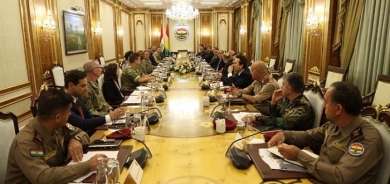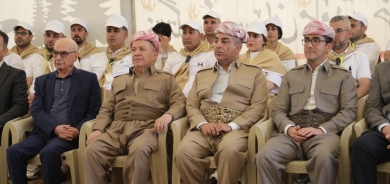Relatives of murdered Afghans demand death for American sergeant

"My last request from the world, all the countries, is that as a family of the victims we want our killer to be hanged," said Haji Baran, who lost his brother Mohammad Daud in the massacre, last March. "If someone entered your house and killed the children and old men and women of the family, what would your response be?"
Bales will enter guilty pleas to charges of premeditated murder on Wednesday, his attorney told the Associated Press. He is expected to be sentenced to life in prison, but a court will decide in September if he will have the possibility of parole. Any plea deal must be approved by both a judge and the commanding general.
There are currently six men on death row in the military prison at Fort Leavenworth, where Bales is being held, but none were convicted for atrocities against foreign citizens and the US military has not executed a service member since 1961.
Some relatives of the dead pledged to seek vengeance if Bales is sentenced to life in prison rather than execution for the attacks, in which he killed nine children and seven adults and burned some of the bodies. The scale of the massacre shocked Afghanistan and the west. Although there have been far larger death tolls from air strikes, they have been accepted, at least in foreign troops' home countries, as tragic mistakes.
"A prison sentence doesn't mean anything," Said Jan, whose wife and three other relatives died, told the AP. "I know we have no power now. But I will become stronger and if he does not hang, I will have my revenge."
The families, and many other Afghans, were already angry that Bales was not tried for the killings in Afghanistan, where he would certainly have faced the death penalty. But if they do try to press for a harder sentence, they may not get unanimous support from their rural community. The US and Afghan governments handed out compensation for the killings, and some villagers consider the payments equivalent to blood money traditionally given to end hostilities between families after a killing. In line with that tradition, if a payment is accepted the family renounce the right to avenge the death.
"It is my Islamic duty to say the truth, that the relatives of the people who were killed and wounded, they already sold their bodies to the Americans," said Abdul Halim Noorzai, a former mujahideen commander from Panjwai district. Two of his family members were injured in the attack, he said, adding that US officials paid out $50,000 for each person killed and $10,000 for each injured victim – a huge amount of money in an impoverished rural area.
"It was their right to take money, but now they don't have rights to decide his punishment. Its up to the US whether they want to punish him or put him to death," Noorzai added.
Haji Satar Khan, an eyewitness to the attacks, said usual compensation for a killing in the area was around $10,000, and because the payouts to the victims' families had been far more generous they would get little support from their neighbours in any attempt to challenge the sentence publicly. "They received more than that, so people will not help them if they do protest," he said.
Mokhtar Amiri contributed reporting
The Guardian












